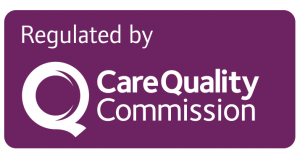Medisonal Clinic Complaints Policy: How we handle complaints
Introduction
Medisonal Limited recognises that there will be times when clients, their families or carers, staff members and others are dissatisfied with aspects of the care and services provided. Medisonal Limited is committed to dealing with any issues that may arise as quickly and effectively as possible.
The potential effects on clients, relatives and staff when things go wrong, can be devastating. Duty of candour, implemented under the Health and Social Care Act 2008 (Regulated Activities) Regulations 2014: Regulation 20, outlines the principles that staff should use when communicating with clients, relatives and/or carers following an incident where harm has occurred, or where there is a risk or possibility that the incident could lead to or result in harm. It underpins a culture of openness, honesty and transparency, and is a duty on the organisation as a whole, as well as individual employee/staff/team members working within the organisation. (For more information on duty of candour, see the separate Duty of Candour Policy).
By making sure that concerns and complaints are dealt with in a timely manner the risk of escalation is minimised and the opportunity of finding a satisfactory resolution to the problem is maximised.
At the same time, compliments are an important means of identifying areas of good practice, and Medisonal Limited will seek to ensure that feedback on good practice is shared with employees to motivate and encourage staff and ensure standards of care are improved wherever possible.
Medisonal Limited will ensure that the complaints procedure is fair and accessible to all.
Policy Statement
All concerns and complaints will be treated seriously and investigated promptly in accordance with the procedures outlined in this policy. Staff will receive training in dealing with concerns and complaints and will ensure that all persons have access to guidance on the procedures for raising a concern or making a complaint. Medisonal Limited is committed to ensuring that no-one is prevented from highlighting concerns or complaints.
Medisonal Limited will ensure that all lessons learned from feedback are used as a means of improving the quality of care and services provided. Any recommendations made as a result of a feedback, will be shared at 1:1 supervision sessions, in order that changes can be considered business-wide and implemented where appropriate.
Medisonal Limited recognises its legal responsibility to respond appropriately and effectively to complaints (e.g., through the Health and Social Care Act 2008 (Regulated Activities) Regulations 2014).
How to Submit Feedback
Compliments and concerns can be given verbally or in writing to any staff or submitted to the Registered Manager.
The Company Lead for compliments and complaints is Thomas Levene or successor.
Complaints must be submitted in writing (via email, text or letter) to the Registered Manager or Anthony Ordman or successor (Lead Clinician) if the complaint relates to the Registered Manager). This is to ensure clarity of the full and specific details of the complaint. Where the complainant is unable to submit a complaint in writing, they should raise the complaint with the Registered Manager, who will then record the complaint.
Comments on social media websites will not normally be deemed to be formal complaints unless submitted in writing via one of the means outlined above.
Medisonal Limited will ensure full information is provided about this Policy in the form of leaflets and posters that are available throughout the Company, including in areas accessible to the public, and on the Company website. The information will be available in different styles and languages where this is required.
Compliments Management Process
All compliments received in writing should be documented. They should also be circulated amongst relevant staff so that they are aware of the number of compliments received, and the specific topics which are raised.
There is no requirement to record compliments which are received verbally, but this is encouraged wherever possible.
No formal acknowledgement of compliments is necessary, however where this is deemed appropriate, it should be encouraged.
Concerns Management Process
Many concerns arise out of a lack of information or understanding, and very often the matter can be resolved via the provision of further information, advice or an apology. This means they can often be dealt with at the time of their raising with a front-line staff. On other occasions it may be that staff can take swift action in order to resolve a concern straightaway or find the most appropriate person to help. Staff should feel empowered to deal with concerns promptly and informally without the need for a more in-depth investigation.
On receipt of a concern staff members will:
- ensure that the immediate health care needs of the person affected by the concern are being met (where the person affected is still in Medisonal Limited care)
- make sure that the person raising the concern does not wish to make a formal complaint
- undertake any enquiries required to resolve the matter respond to the person raising the concern with the appropriate information/advice/apology and/or explain what has been done to resolve the matter
- offer the person raising the concern the opportunity to discuss their concern further.
However concerns are handled, staff should aim to ensure that they are resolved as soon as possible after being raised. Excellent communication at this stage is essential to prevent the concern from escalating into a formal complaint. It is recommended that verbal communication be used primarily at this stage, either face-to-face or via telephone. However, if preferred by the person raising the concern, this can also be in writing, via email or text.
All concerns must be recorded on the incident management system. The record will include details of the concern, how it was resolved, and any further actions required.
Where the concern cannot be resolved in the above manner, it should be forwarded to the Registered Manager. The Registered Manager can discuss the issue with the person raising the concern and initiate the formal complaints process outlined below if required.
Complaints Management Process
Once a complaint has been received, it should be recorded on the incident management system and formally acknowledged within 3 working days of receipt. The acknowledgement should normally be in writing but can be given verbally if appropriate.
The Registered Manager will then either investigate the complaint fully themselves or nominate a ‘Lead Investigator’. If a ‘Lead Investigator’ has been nominated, the complainant must be informed with the name and contact details of the nominated person.
The person investigating the complaint will ensure that it is handled in a way to ensure that it is resolved without undue delay. Complainants should ordinarily receive a written response within 28 working days from the date of receipt. It is important that the right balance is struck between a timely response and one that is informed by comprehensive local action, as this will provide the best response to the complainant and the best opportunities for learning within the business.
The complainant should be sent regular updates on the progress of the investigation and likely timescales for receiving the formal response. If agreed timescales cannot be met, it is essential that the lead investigator informs the complainant of the reason for the delay and that new timescales are mutually agreed. In conducting the investigation, the lead investigator may undertake any of the following:
- contact the complainant to identify the outcome that they are seeking
- provide the complainant the opportunity to give their account and views of what took place
- review the relevant documentation, checking for evidence regarding issues raised
- interview any staff involved in the incident
- develop a timeline of what happened
- identify any shortfalls in level(s) of care provided
- when appropriate, using a Root Cause Analysis, identify the causes/contributory factors/validity of the concerns that have been raised
- identify clear and assigned actions to prevent recurrence and to improve care quality.
The lead investigator will then:
- decide whether the complaint should be upheld in full, upheld in part or not upheld
- make a record of the details of the investigation, outcomes and actions to be taken on the incident management system.
It is essential that every stage of the investigation is based on the best available evidence. The formal response from the Lead Investigator should be structured as follows:
- outline how the complaint has been considered
- explain how conclusions have been reached in relation to the complaint and whether it was upheld in part, in full or not upheld
- describe how any action needed as a result of the complaint has been taken, or is proposed to be taken
- explain that if they are not happy with the findings, an internal appeal is possible
- provide details of the appropriate ombudsman*, should the complainant still be unhappy and wish for their complaint to undergo external review.
The Lead Investigator should ensure that the full written response is filed alongside the initial complaint on the incident management system. If, after receiving the formal response, the complainant is not happy with the outcome, they may write to the Senior Management Team to request an internal appeal.
*See Independent Review Section
Internal Appeal
Upon receipt of an appeal the Senior Management Team will:
- take the time to understand the details of the initial investigation and outcome
- contact the complainant to understand the reason(s) why they are not happy with the initial investigation outcome
- appoint an appropriate independent (non-biased) individual within the business to carry out the appeal investigation
- provide the complainant with the name and contact details of the Independent Investigator.
The Independent Investigator will:
- review the initial investigation and outcome
- meet with or contact the complainant to discuss their continuing concerns
- carry out further investigation, if necessary
- decide whether or not the initial investigation outcome should be upheld
- provide the complainant with relevant feedback and inform them of the appeal outcome.
Once completed, the Independent Investigator will ensure that the incident management system is updated with comprehensive details of the appeal, including actions taken and outcome. They will also report their findings to the Senior Management Team.
Independent Review
Once a complaint has been fully dealt with by Medisonal Limited, if the complainant remains unsatisfied with the outcome of the internal appeal, they can refer the complaint to the [for adult social care services] Local Government Ombudsman
PO Box 4771
Coventry
CV4 0EH
Tel: 0300 061 0614
[For the private healthcare sector] Independent Sector Complaints Adjudication Service (ISCAS).
Details are available at Complaints process – ISCAS (cedr.com)
[For the NHS in England] Parliamentary and Health Service Ombudsman
Helpline 0345 015 4033
https://www.ombudsman.org.uk/about-us/contact-us
Our service is registered with and regulated by the Care Quality Commission (CQC).
The CQC cannot get involved in individual complaints about providers but is happy to receive information about our services at any time. The CQC can be contacted at:
Care Quality Commission,
National Correspondence,
Citygate,
Gallowgate,
Newcastle upon Tyne
NE1 4PA,
Tel: 03000616161,
Fax: 03000 616171
Monitoring and Learning from Complaints
Medisonal Limited regards all forms of feedback as an opportunity to improve the levels of care offered to clients. Medisonal Limited operates within the ‘just culture’ framework. This means that employees are not apportioned unconstructive guilt or blame for genuine mistakes, but that they always remain accountable for deliberate policy deviations. The culture within Medisonal Limited is a supportive one. Where areas of learning are identified following the receipt of feedback, these will be addressed.
In order to ensure that the rest of the business is equally able to learn from feedback received, details of the lessons learned will be shared across the business. The Registered Manager will then be responsible for discussing the most appropriate method of sharing proposed service improvements with the Senior Management Team.
Issues arising from complaints should be a standard agenda item for discussion at the Senior Management Team meeting and the Registered Manager should ensure that themes and trends and lessons learned are shared with staff members.
Unreasonable Complainant Behaviour
Many complainants are angry and feel very aggrieved, sometimes with good cause. Although most complainants behave appropriately, a small number may make complaints that are vexatious or malicious. This may involve making serial complaints about different matters or persisting with the same complaint when nothing further can be done to assist them.
It is important to distinguish between people who make several complaints, because they genuinely believe something has gone wrong, and people who are simply trying to make life difficult. It is important to remember that complainants will often be frustrated and aggrieved and, as a result, it is important to consider the merits of the complaint rather than their attitude.
The fact that a complainant has made a vexatious complaint in the past does not necessarily mean that the next complaint is automatically vexatious. Each complaint must be considered individually, and a decision made as to whether it is vexatious or genuine. Complainants will be deemed to be vexatious or habitual if they have met two or more of the following criteria:
- persistence with pursing a complaint despite Medisonal Limited complaints procedure outlined above having been fully exhausted
- frequently bringing up further concerns and questions with a view to prolonging contact with Medisonal Limited. It is important that new issues are not dismissed, if they are significantly different from the original complaint it may be that they can be addressed as a separate complaint
- being unwilling to accept documented evidence of care given as being factual, including denying receipt of an adequate response to their complaint
- being unable to identify specific issues they wish to be investigated despite all reasonable efforts to assist them
- focussing on a trivial matter that is out of proportion to its significance (careful judgement should be used in using this criterion as it requires a subjective judgement)
- threatening or using physical violence towards staff. This criterion on its own will cause verbal contact with the complainant to cease. Any further communication following this should be solely in written format. Any threats of, or use of, violence should be reported on the incident management system
- placing unreasonable demands on Medisonal Limited’s staff. Discretion is required to determine how many contacts constitute excessive, along with good judgement based on the specific circumstances of each individual case
- harassing or being abusive on more than one occasion to the person dealing with the complaint. If the behaviour is sufficiently severe this may be sufficient to classify it as vexatious
- meetings or conversations are known to have been recorded electronically without the prior knowledge or consent of all parties involved
- displaying unreasonable demands or expectations and failing to accept that these may be unreasonable despite a clear explanation having been provided as to what constitutes unreasonable.
Careful judgement and discretion must be used in applying criteria to identify habitual and vexatious complainants and to decide what action to take. The following actions are available:
- informing the complainant that they are at risk of being classified as habitual or vexatious. A copy of this policy should be sent to them and they should be advised to consider the criteria outlined when dealing with Medisonal Limited in the future
- declining further contact with the complainant, either in person, by telephone, letter, email or text whilst ensuring that one route of contact remains available. Alternatively, further contact could be restricted to liaison via a third party
- notify the complainant in writing that the Senior Management Team has responded fully to the points raised and has tried to resolve the complaint, that there is nothing more to add and that continuing contact on the matter will serve no useful purpose. Complainants should be notified that correspondence is at an end and that further communications will not be acknowledged or answered
- inform complainants that in extreme circumstances Medisonal Limited reserves the right to refer unreasonable or vexatious complainants to solicitors and, if appropriate, the police.
These measures should only be implemented following agreement by the Registered Manager or Senior Management Team. The complainant must be notified of the course of action in writing by the Senior Management Team, including the reasons why the complaint has been classified as habitual or vexatious. The letter should be copied for the information of those involved in the complaint.
Habitual or vexatious status can be withdrawn if a complainant demonstrates a more reasonable approach or submits a separate complaint for which the standard complaints procedure would seem appropriate. Such status should only be withdrawn following discussion between the Registered Manager and Senior Management Team.
Support for Persons Involved in a Complaint
The investigation of a complaint involving allegations of malpractice, assault, etc., can be stressful for staff involved. Sensitivity at this time is required. Managers are encouraged to provide support to their staff. However, in order to maintain their more objective role, an independent mentor (e.g., a manager from another area) can be identified to provide advice and support to the staff member concerned during this difficult time.
When a complaint investigation takes place, staff can be asked to prepare statements or attend interviews. The Lead Investigator will ensure that:
- a staff member is given guidance as to what areas of information they will require from them in a timely manner, allowing time for them to gain support from colleagues and/or unions
- good information governance practice is maintained and that information regarding specific individuals is treated confidentially and with respect; sharing will only take place as far as required to conduct the investigation
- conduct interviews in a professional and supportive manner
- ensure that staff know that the review is being conducted as part of a learning and safety culture, as opposed to the apportioning of blame
- keep staff up to date on the review’s progress.
Records Management
All feedback paperwork will be retained for a minimum of 8 years after last clinical contact for adults and 22 years for children and pregnant women. Any archived paper files will be stored in a secure manner, in order to preserve confidentiality. Feedback related correspondence should not, in any circumstances, be retained in the care record of a person; this should only record information that is strictly relevant to their health.
The security and retention of information on the incident management system is the responsibility of the Registered Manager.
Monitoring
The implementation and levels of compliance with this policy will be monitored by 1:1 supervision sessions, with lessons learned shared through this channel as well as the Senior Management Team.
Related Policies and Procedures
Duty of Candour Policy and Procedure
Information Governance and Record Keeping Policy and Procedure
Whistleblowing Policy and Procedure
Grievance Policy and Procedure
Safeguarding Adults Policy and Procedure
Safeguarding Children Policy and Procedure
Legislation and Guidance
Compensations Act 2006
Care Act 2014
Data Protection Act 2018
The Health and Social Care Act 2008 (Regulated Activities) Regulations 2014
Human Rights Act 1998
The Local Authority Social Services and National Health Service Complaints (England) Regulations 2009
Mental Capacity Act 2005
Mental Capacity Act Code of Practice
How to complain about a care home or care in your home – self-funded or council-funded, Local Government Ombudsman Home – Local Government and Social Care Ombudsman
A Review of the NHS Hospitals Complaints System Putting Service users Back in the Picture, Clwyd & Hart, October 2013. Putting Service users Back in the Picture
Report of the Mid Staffordshire NHS Foundation Trust Public Inquiry, Francis, 2013. https://www.gov.uk/government/publications/report-of-the-mid-staffordshire-nhs-foundation-trust-public-inquiry
Complaints Matter, CQC, December 2014 20141208_complaints_matter_report.pdf (cqc.org.uk)
CQC Receiving and acting on Complaints Regulation 16: Receiving and acting on complaints | Care Quality Commission (cqc.org.uk)
Parliamentary and Health Service Ombudsman: My expectations for raising concerns and complaints My expectations for raising concerns and complaints | Parliamentary and Health Service Ombudsman (PHSO)
NHS Complaint Standards: Summary of expectations NHS Complaint Standards: Summary of expectations | Parliamentary and Health Service Ombudsman (PHSO)
Compliance
Safe | S1: How do systems, processes and practices safeguard people from abuse? |
Caring | C2: How does the service support people to express their views and be actively involved in making decisions about their care, support and treatment as far as possible? |
Responsive | R2: How are people’s concerns and complaints listened and responded to and used to improve the quality of care? |







